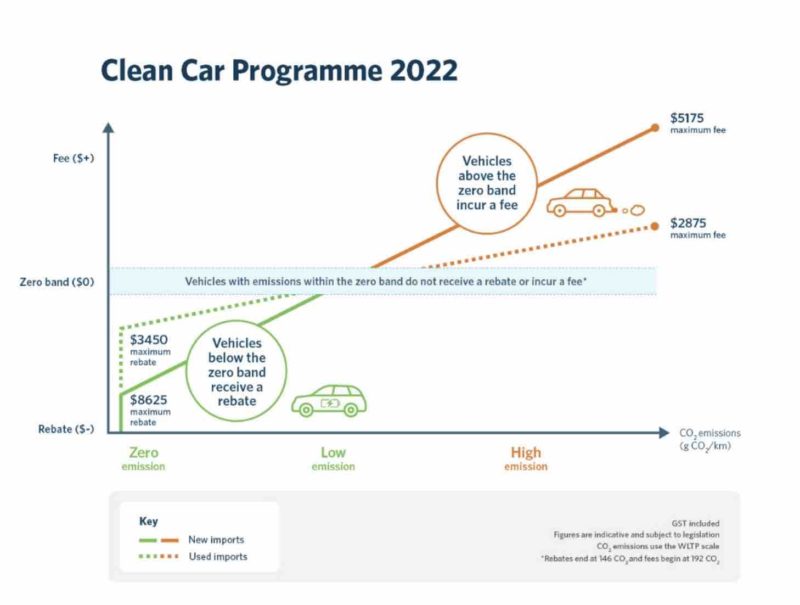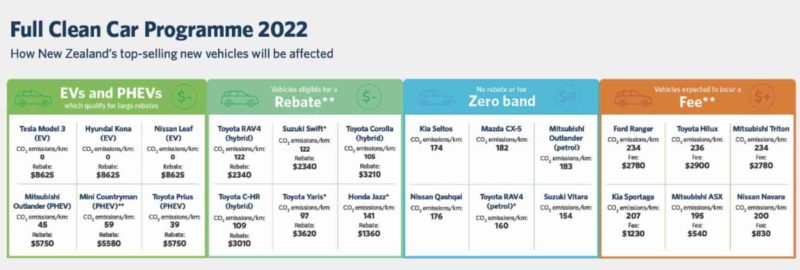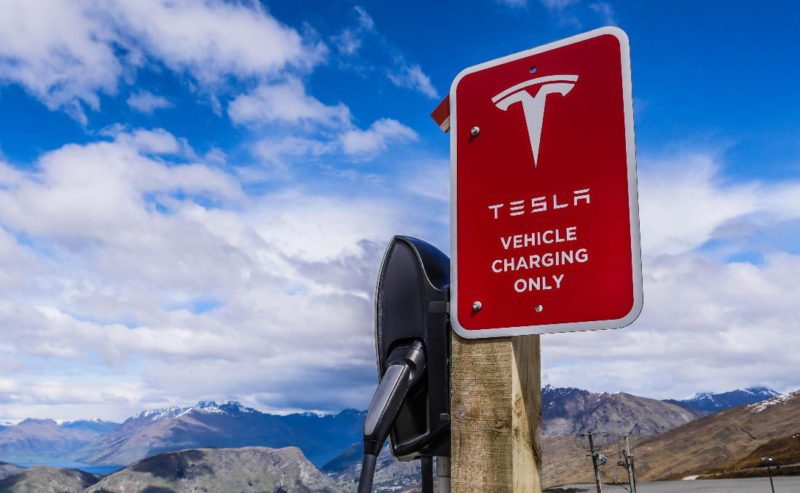New Zealand is to provide a rebate of up to $NZ8,625 for new electric vehicles (EVs) and up to $NZ3,450 for used EVs, while promising to pay for the rebates by taxing higher emitting internal combustion engine (ICE) vehicles.
As Australia struggles to form any sort of national EV policy, New Zealand’s Labour Government has announced its new Clean Car Discount, which comprises the promised “feebate” – a combination rebate for EVs and tax on ICE models.
From July 1, New Zealanders buying an imported new EV will receive a rebate of up to $NZ8,625 ($AU8,000, converted), and those buying an imported second-hand EV will receive a rebate of up to $NZ3,450 ($AU3,200, converted).
New plug-in hybrid (PHEV) buyers will be eligible for a rebate of up to $NZ5,750 ($AU5,300, converted), and second-hand PHEV buyers will be eligible for a rebate of up to $NZ2,300 ($AU2,100, converted).
According to the material provided by the New Zealand Transport Agency, the dual nature of this “feebate” will pay for the rebates by taxing high emitting ICE models, which will go into effect from January 1, 2022, as smaller rebates for low emission vehicles will also come into force.
“The Clean Car Discount will make it cheaper for New Zealanders to buy electric and low emission cars,” said Michael Wood, New Zealand’s Transport Minister. “It will prevent up to 9.2 million tonnes of carbon dioxide emissions and will help with the upfront cost of switching over with Kiwis getting up to $8,625 back.”
Imported higher emitting ICE models will face similar fees, with new ICE imports set to be taxed up to $NZ5,175 ($AU4,800, converted) and second-hand ICE imports up to $NZ2,875 ($AU2,700, converted).
A range of vehicles will fall into a “zero band” and will receive neither a rebate nor fee. However, some of New Zealand’s top-selling new vehicles will be facing new import fees, such as the new Toyota Hilux ute, which will suffer a fee impost of $NZ2,900, the Kia Sportage ($NZ1,230), and the Nissan Navara with a fee of $NZ830.

“Our transport emissions are the fastest growing source of greenhouse gas emissions in New Zealand so we need to start taking action now if we are going to meet our 2050 targets,” said Wood.
“New Zealand is actually lagging behind on the uptake of EVs, so we are playing catch up internationally. Our monthly registrations of EVs are around half the global average and sales are well below the 50 per cent of monthly sales seen in some European countries.
“A discount on electric, hybrid and low emission vehicles funded from a fee on higher emitting ones is the best policy to increase low emissions vehicle uptake in New Zealand.
“It’s a common policy overseas, a recommendation of both the Climate Commission and the Productivity Commission and is supported by the likes of the Motor Industry Association – it’s time to get moving with it.”

Wood also highlighted the face that New Zealand is “doing the work to ensure Kiwis have the confidence to go electric, with electric vehicle chargers now available on average every 75km along most state highways” and pointing to the Government’s investments into charging facilities through the Low Emission Transport Fund.
“The Low Emission Transport Fund has already co-funded over 1,100 electric vehicle chargers nationwide, and as part of Budget 2021 we’re increasing our investment so total funding for the programme will reach up to $25 million per year by 2023/24,” said Wood.
“Other projects using low emission fuels like biofuels and hydrogen, will also now be eligible for funding.” You can find its charger locations here.
The news was welcomed by New Zealand’s Motor Industry Association (MIA). David Crawford, the MIA’s Chief Executive, said he was “delighted” with the introduction of the feebate.
“The level of rebate offered is significant,” said Crawford. “It will in our view address in part the lack of affordability new low emission vehicles cost compared to their internal combustion engine (IEC) equivalent models.”
New Zealand’s commitment to supporting the adoption of electric vehicles comes in sharp contrast to their neighbours across the Tasman Strait.
Australia currently offers no national support, nor any real commitment to the future of electric vehicles. Meanwhile, individual states are making up support on their own, with New South Wales, for example, rejecting Victoria’s example of imposing a road user charge on electric vehicles for “many, many years”, saying at this stage it is necessary to incentivise, not penalise, EV uptake.
Conversely, Victoria passed their controversial new road user charge at the end of May, despite the fact the state had also promised a $3,000 subsidy for electric vehicle purchases and a target that aims to see half of all new vehicles sales to be fully electric or hydrogen by 2030. The ACT offers a stamp duty exemption and interest free loans.
Joshua S. Hill is a Melbourne-based journalist who has been writing about climate change, clean technology, and electric vehicles for over 15 years. He has been reporting on electric vehicles and clean technologies for Renew Economy and The Driven since 2012. His preferred mode of transport is his feet.

